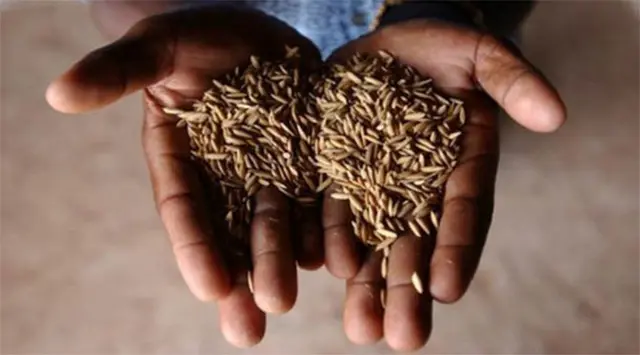Food security and malnutrition situation in Somalia is alarming, especially in parts of Puntland and Somaliland which have been hard hit by poor rainfall and drought exacerbated by El Nino, a UN-backed report reveals on Monday.
The latest food security and nutrition assessment for Somalia which was released in Mogadishu by the UN Food and Agriculture Organization (FAO)-managed Food Security and Nutrition Analysis Unit (FSNAU) in collaboration with Famine Early Warning Systems Network (FEWS NET) says the situation is critical and could get worse.
"Somalia will continue to face large-scale food insecurity between now and June as a result of poor rainfall and drought conditions in several areas, trade disruption, a combination of protracted and new population displacement, all of which is exacerbated by chronic poverty," says the report.
It notes that acute malnutrition remains high in many parts of the country. The latest findings indicate that 931,000 people will be in crisis and 22,000 more people in emergency across Somalia through June.
"We are deeply concerned that the proportion of severely food insecure people remains alarmingly high, especially people who are unable to meet their daily food needs," said Peter de Clercq, the Humanitarian Coordinator for Somalia.
The 2016 Humanitarian Response Plan for Somalia calls for 885 million U.S. dollars to address the most urgent needs of 3.5 million people.
It seeks to reduce preventable deaths, provide basic services and strengthen the protection of vulnerable people, including the internally displaced.
Clercq said some 3.7 million people will be acutely food insecure through mid-2016, adding that with severe drought conditions intensifying in Puntland and Somaliland, many more people risk relapsing into crisis.
The internally displaced persons (IDPs) represent 68 percent of the total number of people in Crisis and Emergency.
About 3.7 million additional people across the country are classified as Stressed through mid-2016. In total, the assessment reports that nearly 4.7 million people or 38 percent of the total population of Somalia are acutely food insecure and will be in need of humanitarian assistance between now and June 2016.
"We must do more to address recurrent hunger. Humanitarian assistance is vital and has achieved enormously positive food security results in recent years," de Clercq stressed.
"But this alone will not free Somalia from the scourge of hunger. We must look to remove the underlying causes of hunger. Fighting hunger is development priority, as well as a humanitarian one," he added.
"The level of malnutrition, especially among children, is of serious concern, with nearly 305,000 children under the age of five years acutely malnourished. We estimate that 58,300 children face death if they are not treated," de Clercq said.
 简体中文
简体中文

